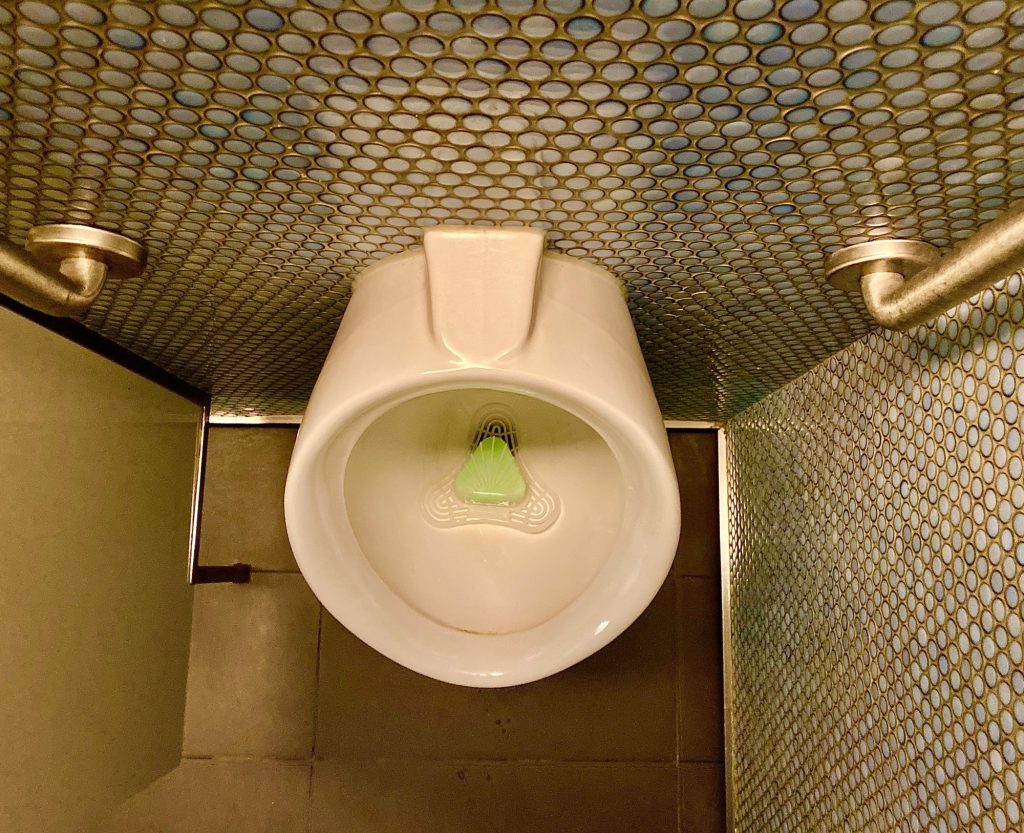Why Does My Pee Smell Sweet?

Detecting a sweet-smelling odor in your urine can be concerning and may suggest underlying health concerns. While urine typically has a subtle scent, various conditions, foods, and lifestyle habits can cause a noticeable sweet aroma. In some cases, sweet-smelling urine results from dietary choices, but it can also indicate more severe conditions that require medical attention. Let’s delve deeper into the common reasons behind sweet-smelling urine and explore practical steps you can take.
Uncontrolled Diabetes or Diabetic Ketoacidosis (DKA)
Uncontrolled diabetes, particularly when it progresses to diabetic ketoacidosis (DKA), is one of the most significant causes of sweet-smelling urine. This condition arises when blood sugar levels become excessively high, causing surplus glucose to spill into the urine, giving it a sweet scent.
How It Happens
In individuals with diabetes, especially when poorly managed, the body’s ability to utilize glucose for energy is impaired. Instead, it resorts to breaking down fat for fuel, resulting in ketone production. These ketones, alongside excess glucose, are excreted in the urine, creating a sweet, fruity smell.
Other Symptoms
Beyond sweet-smelling urine, symptoms of DKA or uncontrolled diabetes may include increased thirst, frequent urination, fatigue, unintentional weight loss, and, in severe cases, confusion, nausea, or difficulty breathing.
What to Do
For those with diabetes or at risk, a sweet smell in urine is a red flag to check blood sugar levels immediately. Consistently high readings warrant a visit to your healthcare provider. They may adjust your medication, recommend dietary changes, or suggest specific lifestyle modifications. Regular monitoring through a glucose meter and maintaining a balanced diet with controlled carbohydrate intake can be crucial in effectively managing diabetes.
Dietary Influences
Sometimes, the cause of sweet-smelling urine is as simple as what you’ve eaten. Certain foods and beverages contain compounds that can affect urine odor.
Foods That Can Cause Sweet-Smelling Urine
- Asparagus: While commonly associated with a sulfuric smell, asparagus can occasionally produce a slightly sweet scent depending on individual metabolism.
- Cinnamon and Vanilla: Large quantities of these spices can impart a sweet aroma to urine.
- Sugary Foods and Drinks: High sugar intake can lead to excess glucose in urine, resulting in a sweet smell.
Practical Tips
If you notice changes in urine odor after consuming certain foods, try moderating your intake. Keeping a food diary can help identify specific triggers. Note any correlations between what you eat and changes in urine scent, which can be useful for discussions with your healthcare provider.
Dehydration
While dehydration is not commonly linked with sweet-smelling urine, it can result in a more concentrated urine that may intensify existing odors, especially if ketones are present.
How It Happens
When the body is dehydrated, it conserves water by concentrating urine, which can amplify any existing odors, including sweet smells from ketones or other substances.
Signs of Dehydration
Look for symptoms such as dark yellow urine, dry mouth, fatigue, dizziness, and infrequent urination as indicators of dehydration.
Rehydration Strategies
Combat dehydration by increasing fluid intake. Aim for at least eight 8-ounce glasses of water daily, adjusting for activity level and climate. Consider sports drinks with electrolytes if you’re active, but be cautious of their sugar content. Herbal teas and water-rich foods like cucumbers and watermelon can also help maintain hydration.
Maple Syrup Urine Disease (MSUD)
Maple Syrup Urine Disease is a rare genetic disorder that can cause sweet-smelling urine, named for the distinct maple syrup scent present in affected individuals.
Understanding MSUD
MSUD is a metabolic disorder where the body cannot break down certain amino acids—leucine, isoleucine, and valine. These amino acids and their byproducts accumulate in the body, leading to the characteristic sweet odor.
Symptoms Beyond Urine Odor
In infants, symptoms include poor feeding, vomiting, lethargy, and developmental delays. In older individuals, neurological issues and muscle stiffness may occur.
Management and Diagnosis
MSUD is typically diagnosed in infancy through newborn screening. Management involves a specialized diet low in the specific amino acids the body cannot process. Lifelong monitoring and dietary adjustments are essential to prevent complications. Genetic counseling can be beneficial for families with a history of the disorder.
Urinary Tract Infections (UTIs)
While UTIs are often associated with a foul odor, certain bacterial infections can lead to sweet-smelling urine.
How Bacteria Affect Urine Odor
Some bacteria produce a sweet or fruity smell as they metabolize sugars in the urine. Though less common, it’s still possible.
Symptoms to Watch For
Besides changes in urine odor, UTIs often cause a burning sensation during urination, increased frequency and urgency, and cloudy or bloody urine.
Treatment and Prevention
UTIs require medical treatment with antibiotics. Drinking plenty of water can help prevent UTIs by flushing bacteria from the urinary tract. Although evidence on the effectiveness of cranberry juice varies, it has traditionally been suggested for UTI prevention. Probiotics and proper hygiene practices can also support urinary health.
Medications and Supplements
Certain medications and supplements can alter urine odor, sometimes producing a sweet scent.
Common Offenders
- Vitamins: High doses, particularly of B vitamins, can change urine odor.
- Antibiotics: Some antibiotics may cause sweet-smelling urine as a side effect.
- Medications for Diabetes: Some diabetes medications work by allowing more sugar to be excreted in urine, potentially causing a sweet smell.
Monitoring and Adjustments
If you start a new medication and notice a change in urine odor, discuss it with your healthcare provider. They can determine if it’s a known side effect and whether any adjustments are needed. Never alter medication dosage without professional guidance.
Hormonal Changes
Hormonal fluctuations, particularly in women, can sometimes cause changes in urine odor.
Pregnancy and Menstrual Cycle
During pregnancy, women might experience changes in urine odor due to hormonal shifts and an increased sense of smell. Similarly, hormonal changes during the menstrual cycle can sometimes affect urine scent.
Managing Hormonal Impacts
While hormonal changes can’t be controlled, staying hydrated and maintaining a balanced diet can help minimize significant changes in urine odor. Including phytoestrogen-rich foods like flaxseeds and soy can support hormonal balance.
When to Seek Medical Attention
A sweet smell in urine might be harmless, but you should know when to consult a healthcare professional.
Red Flags
Seek medical advice if sweet-smelling urine is accompanied by other concerning symptoms such as weight loss, fatigue, confusion, or severe dehydration signs. These may indicate serious conditions like DKA or MSUD.
Health Maintenance
Regular check-ups and blood tests can help catch potential issues early. If you have a family history of metabolic disorders or diabetes, discuss this with your doctor to determine if preventive measures or screenings are needed. Consider using at-home urine test strips for regular monitoring of glucose and ketones if you’re managing diabetes.
Additional Considerations
Lifestyle and Environmental Factors
- Exercise: Intense physical activity, especially in hot weather, can lead to dehydration, affecting urine concentration and odor. Ensure adequate hydration before, during, and after workouts.
- Stress: Chronic stress can influence hormone levels, potentially affecting urine odor. Incorporate stress-reducing activities such as yoga or meditation into your routine.
- Environmental Toxins: Exposure to certain chemicals and pollutants can alter bodily functions and may influence urine odor. Use natural cleaning and personal care products when possible.
Exploring Natural Remedies
- Herbal Teas: Dandelion and nettle teas can support kidney function and help regulate urine odor.
- Essential Oils: While not to be ingested, certain oils like peppermint can be diffused to promote a calming environment, indirectly supporting overall wellness and bodily functions.
Understanding the potential reasons behind sweet-smelling urine empowers you to address the issue promptly. Whether it’s a dietary change, a sign of diabetes, or a rare metabolic disorder, recognizing the symptoms and knowing when to seek help can make all the difference for your health. Always consult a healthcare provider if you have persistent concerns about your urine odor, and consider lifestyle and dietary adjustments as initial steps toward resolution.



